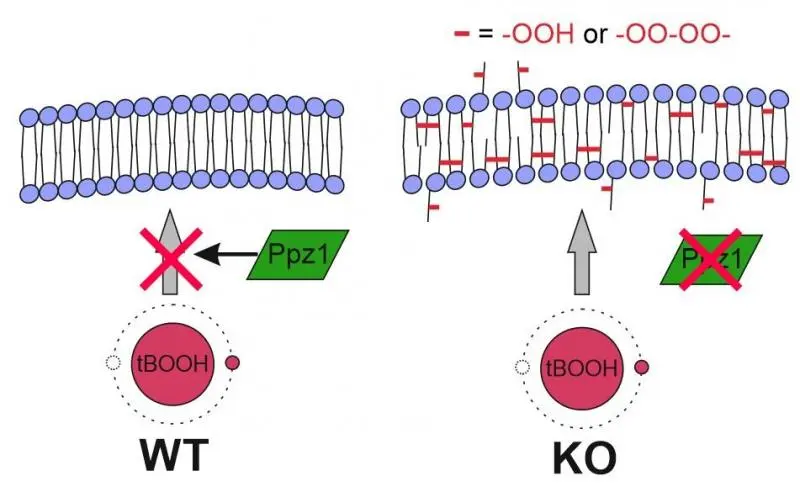
In a collaborative study, the fungus-specific protein phosphatase Z1 (Ppz1) enzyme has been investigated and it was found to be crucial in the defence against oxidative stress. Researchers in the Department of Biophysics and Cell Biology, Department of Medical Chemistry and Department of Molecular Biotechnology and Microbiology proved that the deletion of the gene of Ppz1 leads to low membrane compactness and an increase in the sensitivity to oxidative challenge in Candida albicans cells. Examining the membrane fluidity-related generalized polarization reveals that while most native cells (WT) expressing Ppz1 were able to neutralize the effect of the applied oxidative agent, tert-butyl-hydroperoxide (tBOOH), mutant cells lacking Ppz1 expression (KO) suffered from latent oxidative damage and were characterized by incompact membrane. The lack of Ppz1 also manifests in increased membrane lipid peroxidation. Investigation of the lateral mobility of lipids revealed that the lack of Ppz1 combined with oxidative stress reduces the lateral diffusion of lipids resulting in reduced competitive fitness. According to these data, applying mild oxidative treatments together with prospective Ppz1 inhibitor molecules may tackle fungal infections caused by drug-resistant Candida albicans species. The study also revealed that changes in membrane characteristics may be used by fungal cells as a cue for responding to changes in the environment. Results of this study were communicated in the journal Free Radical Biology and Medicine (https://doi.org/10.1016/j.freeradbiomed.2021.09.020).